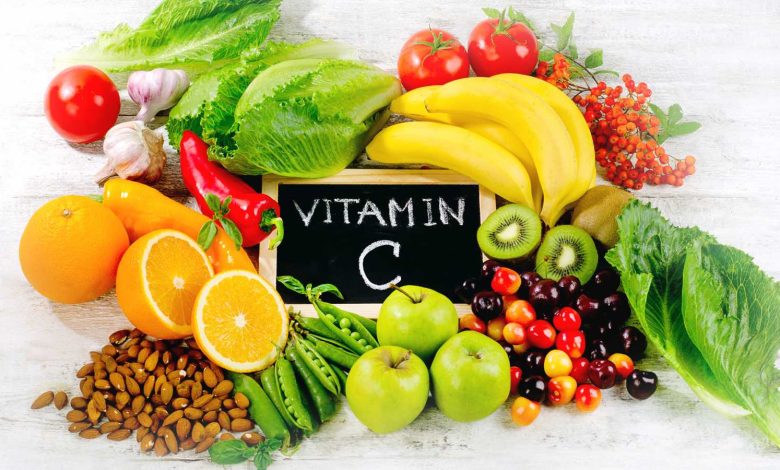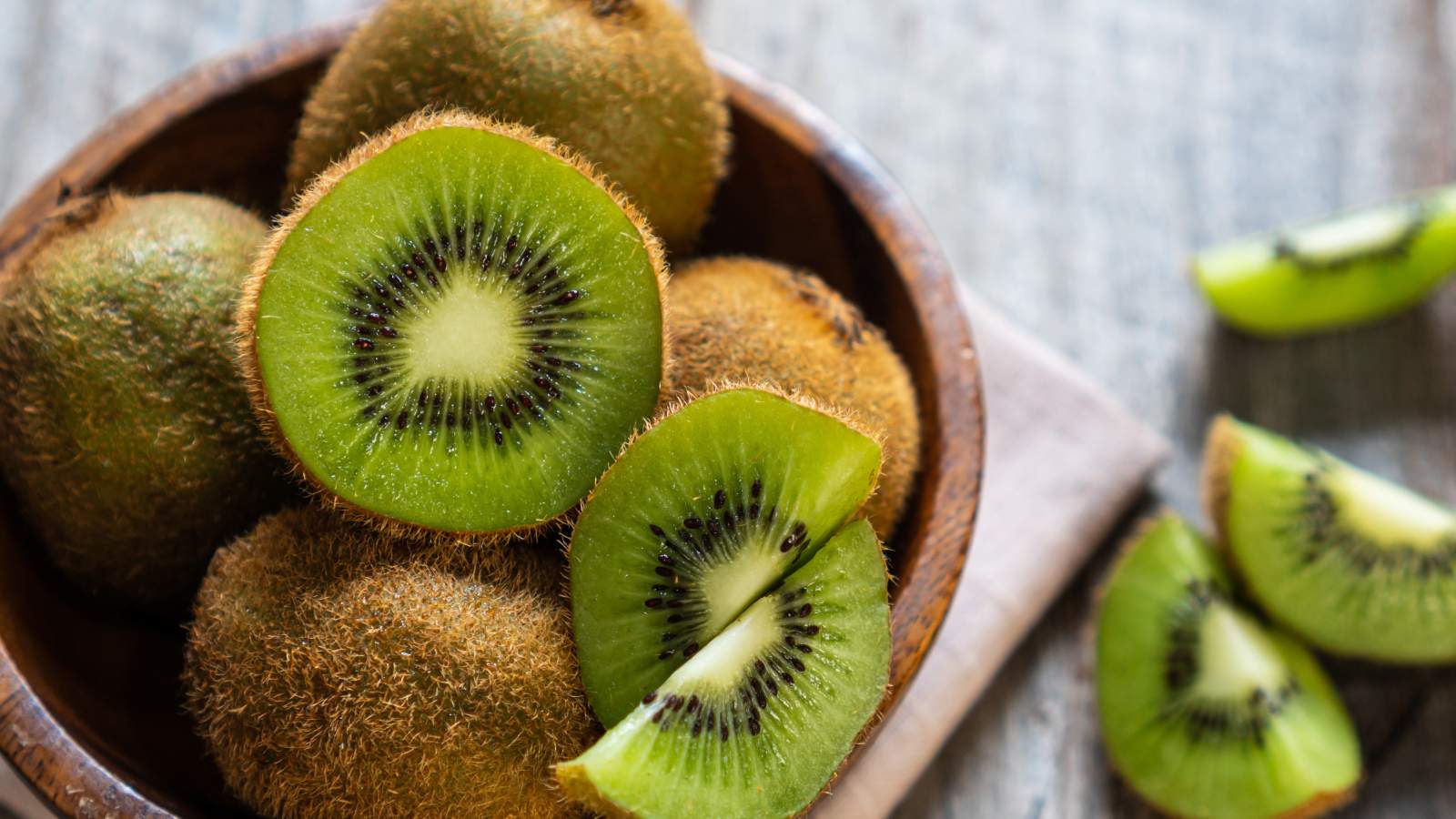
From supporting immunity to boosting collagen production, vitamin C-rich foods have to be a part of your daily diet. Know 12 foods highest in vitamin C nutrients beyond oranges and lemons.
Vitamin C is one of the most vital nutrients that your body needs on a daily basis! It plays a crucial role in boosting our immune system and promoting skin health, making it essential for overall well-being. While many people immediately think of oranges and lemons as their go-to sources of vitamin C, there is a whole world of options out there! Did you know that sweet yellow peppers, kiwi, and even broccoli are packed with this powerful vitamin? These foods not only enhance your immune function but also help in collagen production for glowing skin. So, why limit yourself to just citrus when you can enjoy a rainbow of vitamin C-rich foods? Go ahead and find a list of the top vitamin C-rich foods you may add to your diet!
Why do you need vitamin C?
Vitamin C is a powerhouse when it comes to keeping your body running smoothly. First off, it is the most crucial nutrient in supporting your immune system, boosting the production of white blood cells and antibodies to help you fend off infections. Plus, it is crucial for making collagen, which keeps your skin looking youthful while also keeping your bones and connective tissues strong.
“As a powerful antioxidant, vitamin C helps neutralise free radicals—molecules that can damage your cells and contribute to chronic illnesses. In case you are eating a plant-based diet, vitamin C helps you absorb more iron, which can lower the risk of anemia or iron deficiency,” explains nutritionist and certified diabetes educator Dr Archana Batra. So, loading up on vitamin C not only keeps you healthy but also helps you feel your best inside and out.
How much vitamin C do you need per day?
The recommended daily intake of vitamin C varies by age, gender, and other factors. For most adults, the daily recommended amount is 90 mg for men and 75 mg for women. Pregnant and breastfeeding women may need more, with recommendations of 85 mg and 120 mg, respectively, as per the dietary guidelines released by the US Department of Health and Human Services. The requirements for children range from 15 mg for infants to 75 mg for teenagers.
While most people can meet their needs through a balanced diet rich in fruits and vegetables, some people may require supplements, especially those with certain medical conditions or dietary restrictions. It is always a good idea to consult with a healthcare professional to determine the right amount of vitamin C for your specific needs.
Vitamin C-rich foods
Here are 12 top foods packed with vitamin C that should be a part of your daily diet:
1. Sweet yellow peppers
Sweet yellow peppers are a vitamin C powerhouse, offering more than three times your daily recommended value. One large yellow pepper provides a whopping 342 mg of vitamin C, which is 380 percent of your daily value (DV). This makes it an excellent addition to salads, stir-fries, or even as a raw snack. Besides vitamin C, yellow peppers are low in calories and provide plenty of antioxidants that help support overall health.

2. Mustard spinach
Leafy greens are always a great choice, and mustard spinach is no exception. A single cup of raw, chopped mustard spinach contains 195 mg of vitamin C or 217 percent of your Daily Value (DV). “In addition to being rich in vitamin C, mustard spinach provides other vital nutrients like vitamin K, which supports bone health,” says Dr Batra. Whether you toss it in salads or use it in smoothies, mustard spinach is a nutritious, vitamin C-packed addition to any meal.
3. Guavas
If you are looking for a sweet fruit that is packed with vitamin C, guavas are an excellent choice. A single guava provides 125 mg of vitamin C, which is 138 percent of the DV. Along with vitamin C, this topical fruit is also high in dietary fibre, which helps digestion. Enjoy them raw, sliced in salads, or blended into smoothies for a delicious way to boost your vitamin C intake.
4. Black currants
Black currants might not be the most common fruit, but they are loaded with vitamin C. Just a half-cup serving (56 g) provides 102 mg of vitamin C or 113 percent of the DV. In addition to their high vitamin C content, black currants are full of anthocyanins, powerful antioxidants that have been shown to reduce inflammation and promote heart health. Try using black currants in jams, desserts, or smoothies to get your daily dose of vitamin C.
5. Chili peppers
Spicy food lovers will be happy to know that chili peppers are a great source of vitamin C. One green chili pepper provides 109 mg of vitamin C, while a red chili pepper contains 65 mg. Adding chili peppers to your dishes not only gives them a spicy kick but also boosts your vitamin C intake, promoting immune function and skin health. Use them in salsas, stir-fries, or sauces for an added health benefit.
6. Strawberries
Strawberries are another sweet and nutritious fruit that is rich in vitamin C. One cup of sliced strawberries (166 g) provides 97 mg of vitamin C, which is 108 percent of the DV. Not only are strawberries a delicious snack but they are also packed with antioxidants that support heart health and reduce inflammation. Add them to your morning cereal, yoghurt, or smoothie for a refreshing, vitamin C-rich treat.

7. Kale
“Kale is one of the most nutrient-dense vegetables available, and it is a fantastic source of vitamin C,” according to Dr Batra. A 100-gram serving of raw kale contains 93 mg of vitamin C or 103 percent of the DV. Kale also boasts high levels of vitamin K and other antioxidants that protect against disease. Incorporate kale into your diet by adding it to salads, or blending it into smoothies.
8. Papaya
Papaya is a tropical fruit that is rich in both flavour and nutrients. One cup (145 g) of papaya contains 88 mg of vitamin C, or 98 percent of the DV. This fruit is also a good source of vitamin A, which is beneficial for your eyesight. Enjoy papaya on its own, in fruit salads, or blended into smoothies for a refreshing vitamin C boost.
9. Brussels sprouts
Brussels sprouts may not be everyone’s favourite vegetable, but they are an excellent source of vitamin C. One cup of Brussels sprouts offers 74 mg of vitamin C or 79 percent of the DV. These small cruciferous vegetables are also packed with fibre, antioxidants, and other vitamins that promote digestive health. Roast them with olive oil and garlic for a tasty side dish.
10. Cantaloupe
Cantaloupe is a refreshing fruit that is not only hydrating but also rich in vitamin C. One cup of cantaloupe offers 57 mg of vitamin C or 63 percent of the DV. Cantaloupe is a great addition to fruit salads or smoothies that can keep you hydrated, especially during the warmer months.
11. Kiwi
Kiwi is a small but mighty fruit when it comes to vitamin C content. One medium kiwi contains 56 mg of vitamin C, which is 62 percent of the DV. “This tangy, green fruit is also rich in fibre and other essential vitamins, making it a nutritious snack or addition to salads and smoothies,” says the expert. Kiwis are also known to promote digestion and support immune function.

12. Broccoli
Broccoli is a nutrient-dense vegetable that is rich in vitamin C and many other essential vitamins. A half-cup of cooked broccoli provides 51 mg of vitamin C or 57 percent of the DV. In addition to vitamin C, broccoli is high in fibre and antioxidants that support overall health. Try adding broccoli to stir-fries, soups, or as a simple steamed side dish.
Citrus foods packed with vitamin C
The most common citrus foods that are well known for their vitamin C content are oranges and lemons.
1. Oranges: Perhaps one of the most well-known sources of vitamin C, oranges are an easy and delicious way to meet your daily requirements. One medium orange provides 83 mg of vitamin C, which is 92 percent of the DV. Oranges can be enjoyed as a snack, juiced, or added to salads for a burst of citrus flavour.
2. Lemons: Lemons are also packed with vitamin C. One whole raw lemon contains 45 mg of vitamin C or 50 percent of the DV. You can use lemons in dressings, and teas, or squeeze over vegetables and meats to enhance flavour while adding a vitamin C boost. Lemons are also well known to improve digestion and can support detoxification.
Source: healthshots





